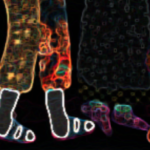Kosovo and Argentina: So Far and Yet So Close
By: admin September 19, 2013
In reality, there are many things that people from Argentina and Kosovo have in common. We are both family-oriented societies. We enjoy spending time with friends over long coffee breaks. We have vibrant cultural backgrounds and immense passion for football and politics. We have both suffered from political instability, lack of trust in our governments, and we went through many fights to gain our independence.
By Laura Agosta
I first set foot in the Republic of Kosovo on a hot July morning in 2012. Since my initial interest in the region, I have been amazed how little we know about the Balkans in Argentina (which is strange when considering Argentina’s southern and eastern European immigrant influence). I conducted an informal survey among my college graduate friends and family members and realized they associated Kosovo mainly with refugees, war, political problems, and international crime. However, not many of them could locate the country on a map, let alone the language and religious beliefs of Kosovo citizens.
People in Argentina tend to believe there are no possible connections between the two countries. From my personal experience and life in the United States, I often found myself having dinner with Kosovars (primarily Albanians) in a scene that, despite the language and lack of asado and fernet on the table, could have been a part of my long nights of discussions with my friends in Buenos Aires. Listening to them talk about politics and football felt like home. How could these two cultures with no apparent ties have so much in common and yet we do not know about it?
Let me start from the beginning: Argentina does not recognize Kosovo. This is certainly not a big news, since only 101 out of 191 United Nations member states recognize it so far. Argentina claims that Kosovo’s “unilateral” independence goes against international law. Many people here state that the political reason behind this goes back to Argentina’s claim on the Malvinas Islands (or Falklands). Though they are currently a British territory, we claim them as ours. Moreover, Argentina has strong diplomatic ties with Serbia, inherited from former Yugoslavia, and a large amount of Serbian immigrants within our borders.
However, Argentina’s position during the war in Kosovo was not as distant. Our military force was involved in the peace-building process and the KFOR since 1999. Private aid was also important. In 2000, Amalia Fortabat, one of the most prominent businesswomen and philanthropists in Argentina, donated half a million USD to the United Nations World Food Programme for Kosovo. Why would she send that much aid to a country so distant and with no connections at all? She read a newspaper article about the story of Hyre Jasharaj, then a teenager of war. The power of stories creates connections.
In reality, there are many things that people from Argentina and Kosovo have in common. We are both family-oriented societies. We enjoy spending time with friends over long coffee breaks. We have vibrant cultural backgrounds and immense passion for football and politics. We have both suffered from political instability, lack of trust in our governments, and we went through many fights to gain our independence.
This starting point of shared passions and pains makes me think about what our two countries can learn from one another. There are two valuable ones that stand out in my mind. First, I was amazed at Kosovars’ resilience. They have this ability to convert suffering into opportunities and refuse to stand still in a contextual lack of opportunities. Kosovars in-country are building institutions and Kosovars abroad are helping the country and their families in ways that demonstrate how strong national ties can bring hope for the future generations. Kosovars do not seem to expect the government to solve all their problems. The strong sense of community is paired with a sense of individual responsibility, building a society where trust is the common currency and help is often near. Argentinian society could benefit from this approach, encompassing civic cohesion beyond political parties and government.
Argentina, on the other hand, is home to one of the most studied peaceful processes of reconciliation after the last military regime of 1976-1983. This dark period for our political and civil liberties led to thousands of people killed and thousands more disappeared, as well as abuses from the government and rebel forces that opposed it. We teetered over laws and regulations once the country regained its democratic system. Of course, this process had its flaws, but overall justice was achieved in many cases. Today, many of those wounds have healed. Now that the reconciliation process is beginning, Kosovo could benefit from examining the Argentinian model.
Two years ago, I began to research the image Kosovo has in Argentina. I studied the official position of Argentina on the Kosovo issue, and interviewed ambassadors, public officials, and people in academia. The European immigrant influence our country has gained in the last century has created a tie between our two countries, and it is time to truly recognize this.
***
 Laura Agosta is a development practitioner, raised in Buenos Aires, Argentina. Laura holds a BA in Political Sciences from the Universidad Catolica Argentina, and a Master of Public Administration from the School of International and Public Affairs at Columbia University in New York City.
Laura Agosta is a development practitioner, raised in Buenos Aires, Argentina. Laura holds a BA in Political Sciences from the Universidad Catolica Argentina, and a Master of Public Administration from the School of International and Public Affairs at Columbia University in New York City.
The views expressed in this article are the author’s and do not necessarily reflect Kosovo Diaspora’s editorial policy or the organizations she is affiliated with.














